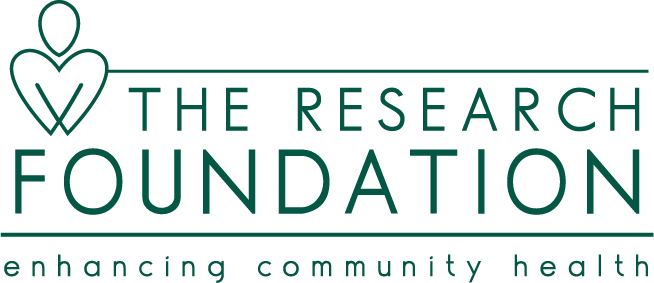Advice from a Research College Nursing graduate of 1984
Karen Gabel Speroni, PhD, RN, BSN, MHSA, decided to be a nurse at age 10. She wanted to create a healthier, better world. While Karen always knew she wanted to be a nurse and that nursing would be the stepping stone building the path – she just didn’t know where that path would take her. When it was time to go to college, she identified the best nursing school in Kansas City: Research College of Nursing. She would eventually graduate with the first BSN class in 1984.
Karen’s nursing career path is research. She works as a biomedical research consultant serving hospitals as a research infrastructure expert and has served as a clinical scientist on institutional review boards since 1999. She is a nursing research consultant for health care systems in the United States. She also works for the American Nurses Association, Nursing Knowledge Center, as a consultant and educator for hospitals seeking to obtain ANCC Magnet® recognition. Karen has more than 75 published works that cover a wide variety of research related topics. She has traveled the world, presenting research or Magnet related lectures in Australia, Brazil, Canada, Europe, and the United Arab Emirates. She has also served on mission trips in India, Nicaragua and Uganda.
Her time at Research College of Nursing was hectic and demanding. While studying full time, Karen worked as a nursing assistant at Research Medical Center, typically working 12-hour shifts on the weekends. When she wasn’t in class, studying or working at the hospital, Karen also worked in restaurants.
During her freshman year, Karen’s mother died from brain cancer. She didn’t take any time away from her studies or her work to stay busy but the grief of losing a parent was difficult and overwhelming at times. She noted “The nursing faculty was receptive. They noticed something was wrong and nurtured me through that difficult time. If they had not done that, I’m not sure what would have happened to me.”
The passion she identified for nursing when she was 10 was finally given direction with her first job at the Veteran’s Administration Hospital in Kansas City. The chief nurse asked her to train as an intensive care nurse, a high pressure job she considered challenging. She had recalled the time in the ICU with her mother and wasn’t quite ready to enter that space. But Karen was comforted by her coursework in critical care at Research College of Nursing and felt prepared for the challenge. “Because of the critical care module, I was prepared and that chief nurse picked me for the ICU. She saw something in me I didn’t see. And that was the skill set required to be an ICU nurse. She was one of the first to challenge me and I am glad I embraced that challenge”. She completed the ICU certifications that year.
Karen took the less comfortable road again while pursuing her masters at The George Washington University in Washington, D.C., attending college part-time while working full-time at the GWU Medical Center, and also for a nursing agency working as a RN in ICUs in the D.C. area hospitals. Initially at GWU, she was asked to work on the neurosurgery unit, another field that she had considered challenging – again too close to what she had just experienced with her mother.
She embraced her next career opportunity – and that was working for the GWU Department of Surgery starting in 1986. She recalled what she had learned in her research course at Research College of Nursing and knew there was still a lot to learn. But she also knew “Don’t run from your challenges. Embrace them, because they can turn into a good thing.” Fortunately, she had excellent mentors in research during her time at GWU.
And that initial research job has turned into a good thing. She has continued working in various research capacities since 1986, and research continues to be her passion. She feels very fortunate to love the work that she does. “Now I mentor new researchers and teams through the research process to answer that best practice question. I want nurses to be asking questions that will advance the practice of nursing, whether care delivery, patient outcomes or work environment. And they need mentors to guide them through a structured process.”
Mentors guided Karen through her career by creating challenging opportunities to advance her skillset in ways that she might never have chosen. She noted that those areas that others identified for her as her strengths were also indicators of her career passion. The young woman who was not certain of her path within nursing found her place within research and is now giving back by mentoring others and advancing the profession through her work as a research scientist and also as a consultant and educator.
It is appropriate that a research expert got her start at Research College of Nursing. Karen credits the program for igniting her interest in human spirituality and the desire to make the world a better place from her studies at Rockhurst Unversity. She’s used the foundation she built at Research College of Nursing to advance the practice of nursing through her various research studies.
“Nursing is a lifelong learning profession. There are people who will challenge you down a different path or to learn a nursing specialty that you never imagined you would have a passion for. When those opportunities arise, be sure to seize the moment – you never know the path it will take you so that you too can best advance the practice of nursing.”
